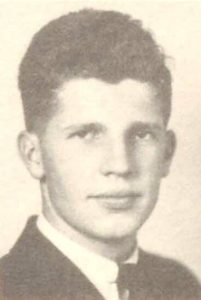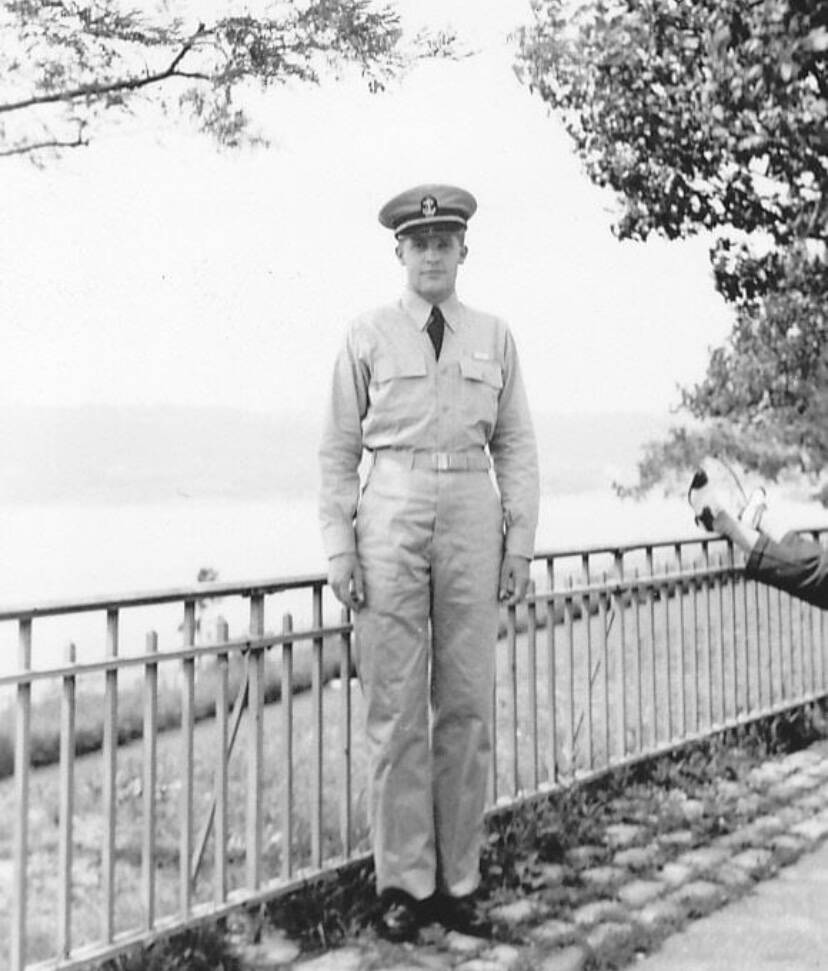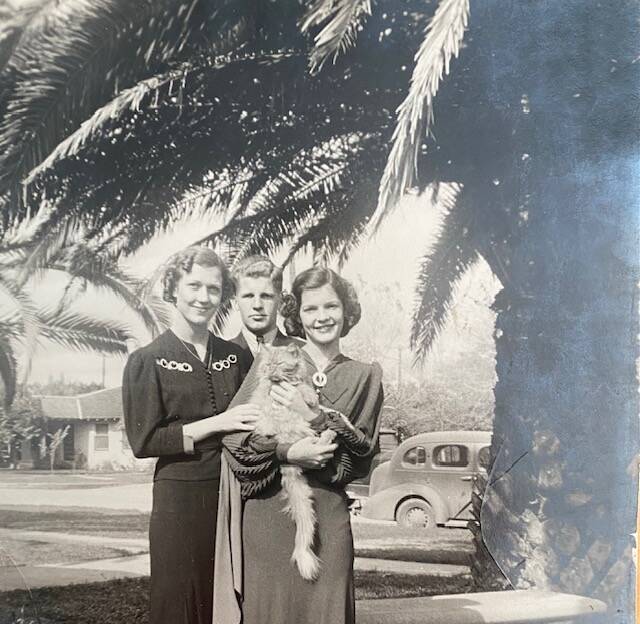|
Only have a minute? Listen instead
Getting your Trinity Audio player ready...
|

HARLINGEN — It’s a darker time and a sinister time as Nazi Germany spreads its hatred across Europe.
The year 1940 is a rough year as the German war machine indulges Adolf Hitler’s hate and his delusional ambitions. They spread the fragmentation of his hate as German panzers and ground troops slam into France and Belgium and Holland.
Their almost inhuman stamina and ferocity shocks everyone. History later reveals these troops were jacked up on methamphetamine. The Luftwaffe providing air power to this murderous rampage is commanded by a morphine addict named Hermann Goering.
Back home, a young man named Porter Pile is quietly attending classes at Texas A&M University in Kingsville, says his nephew Randy Fleuriet, husband of long-time school board member Gerry Fleuriet. He’s close enough to Harlingen that he can surely come home often enough to see his parents Leo and Helen and his sisters Virginia and Rozanne.
Brett Porter Morgan, another nephew, recalled his mother was very close to her brother and looked up to him. When his plane was shot down over Germany in 1944 she took it especially hard, so much so that she gave her son the middle name Porter after her brother.
The preceding ten years had been hard on everybody. The Great Depression sent everyone spiraling and then scrambling and finally rethinking how to do life. Perhaps this rethinking and reworking and this doing more with less prepared many for the wars on the horizon.
Certainly the Piles and their friends and neighbors — Leo and Helen enjoyed playing canasta and bridge — could see something was coming. Harlingen wouldn’t get its first radio station until 1941 but the Harlingen Star — later the Valley Morning Star — had begun publishing in 1909.
News was much slower in the 1930s, or at least the reporting of it was slower, but what people heard and read from around the world was grim. Anti-Jewish laws had sent Jews fleeing Germany. Kristallnacht — Night of Broken Glass — in 1938 created an angry reaction with stories about Jewish owned stores and synagogues. Then, Germany invaded Poland in 1939.
But in the midst of all this was the swing era in the United States, the time of the “Big Bands” and Glenn Miller and the Andrews sisters. The younger Harlingen has already opened the Rialto, its first movie theater. In 1928, the Harlingen Municipal Auditorium opens with 2,300 seats.
Harlingen in its fledgling years already had its own fire department and a hospital. Several churches have just opened for services, one of them the First Presbyterian Church where the Piles become active members.

Perhaps it was their faith that allowed them to remain strong as they heard about the British Expeditionary Force being evacuated from Dunkirk and the Nazi’s triumphant entry into Paris and the devastation of London during the Battle of Britain.
The news from Europe was disturbing enough but still Americans did not want another war. British Prime Minister Winston Churchill had expended a great energy trying to impress upon U.S. President Franklin D. Roosevelt the grave crisis facing westerners. Most of Europe was now occupied by Germany and Churchill knew England didn’t have a chance without U.S. involvement.
Still, Roosevelt couldn’t agree to a war until the American public agreed.
And they did, the moment Japan bombed Pearl Harbor on Dec. 7, 1941.
One of them suddenly in favor of joining the Allies with Great Britain was Porter Pile. The bombing immediately derailed the lives of every American, but especially that of young men in their late teens and early 20s.
Many of these new recruits dropped out of high school or college. Neither Morgan nor Fleuriet know the details of his college life. They don’t know if he even finished college, but they do know that in 1942 he raised his right hand.
“He originally enlisted in the Navy but they switched him over to the Army Air Corps,” Morgan said.
Fleuriet recalled that his uncle went into the Army at the newly opened Harlingen Army Airfield (later known as the Harlingen Air Force Base).
“From there he went to various trainings and ended up being trained as a navigator and commissioned as a second lieutenant in the United States Army Air Corps,” Fleuriet said.
The Air Corps was the precursor of the United States Air Force.
An article in the Lubbock Avalanche Journal quotes Michael J. Cambon describing his job as a navigator on a B24 Liberator to which Porter would be assigned.
“Aerial navigation required basic subjects such as trigonometry and plane geometry, but also spherical trigonometry for celestial navigation,” he said. “Tools were circular calculators to convert air speed, compass heading and wind drift into direction and speed on the ground.”

Porter married a young girl named Barbara from Alice. After finishing his state-wide training he was assigned in 1944 to Tibenham Airfield in England where he joined the crew of a B24 Liberator Bomber. An aviator in WWII would fly 25 missions and would then be reassigned to some other support role.
By the time Porter went on his fatal 23rd mission over Germany, Hitler had completely lost his mind. Even his own officers could see this. The Battle of Stalingrad had dealt a heavy blow to Hitler’s delusional plans. The Allies had landed in Normandy in June 1944 and were pushing toward Berlin, his officers had tried to assassinate him in the July 20th plot, and Charles de Gaulle had just made his triumphal entry in Paris.
Porter and his crewmates probably didn’t know about the concentration camps and their horrors, but he and his crew members knew they had a crucial mission.
On the night of September 27, 1944, a massive air armada took to the skies over England from various bases.
“I think it was about 450 aircraft, a combination of heavy bombers and fighters to attack and drop bombs on Kassel, Germany,” said Fleuriet. “Kassel was an industrial center for the Third Reich for the production of tracked vehicles.”
Weather conditions were not good. The bombing raid was a success, but a small bombardment group of about 35 planes got lost and separated from the others. They dropped their payload and then tried to return to their unit, but by now they had no fighter escorts. German planes took to the air.
“It’s just a slaughter in the air,” Fleuriet said. “Only four of the 35 B24s returned to the base in Tibenham. About 118 airmen are killed in the raid. There are about 100 that are taken prisoner.”
Fleuriet said it was an immense tragedy and it remains the largest loss of aircraft in any one mission to this day for the United States Air Force.
And it was a huge loss for the family of Porter Pile, who had to wait decades to find out his final fate.
Editor’s note: This is the second of a three-part series on the life — and death — of Lt. Porter Pile.
Here’s the first part:



